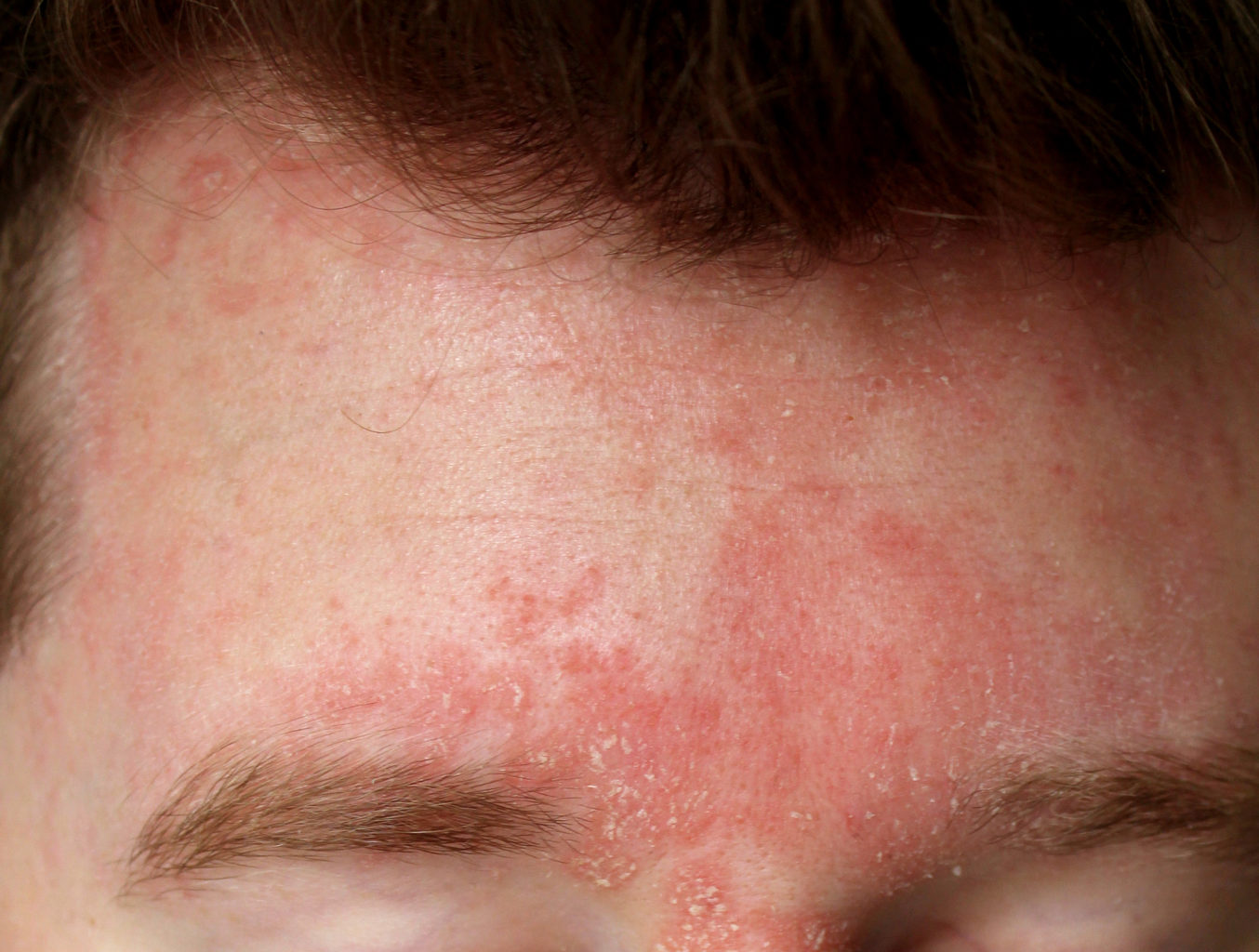
Seborrheic Dermatitis is a common form of eczema that occurs frequently around oil-producing areas of the body, such as the scalp, nose, chest, and upper back. This condition can appear as scaly red patches, greasy or oily areas, or dandruff. Although seborrheic dermatitis can affect anyone, it is most commonly found in infants (mainly in the diaper area) and adults between the ages of 30 and 60. Flare-ups in adults can last for years.
Cause
Although dermatologists have yet to find a definitive cause for seborrheic dermatitis, there are two conditions it may be related to:
- A yeast (fungus) called “Malassezia” that is in the oil secretion on the skin
- An irregular response of the immune system
However, dermatologists can conclude, that seborrheic dermatitis is not caused by poor hygiene or allergies. This condition is also not contagious.
Comorbidities
There are common health conditions found in patients with seborrheic dermatitis, including:
- Neurologic and psychiatric conditions
- A weakened or compromised immune system
- Recovery from stressful medical conditions (such as a heart attack)
- Selective medications
Treatment
Seborrheic dermatitis can be treated like many other types of eczema with medicated shampoos, creams, and lotions. These treatments can include prescription-strength hydrocortisone, fluocinolone, clobetasol, and desonide. Antifungal gels, creams, or shampoos may also be recommended.
An over-the-counter home remedy such as dandruff shampoo with active ingredients like zinc pyrithione, salicylic acid and sulfur, coal tar, selenium sulfide, and ketoconazole may improve the condition.
If you’re experiencing seborrheic dermatitis and want to learn more, or schedule an appointment, call our office at (317) 732-8980.
Disclaimer: This blog provides general information and discussion about medical, cosmetic, mohs, and surgical dermatology. The words and other content provided in this blog, and in any linked materials, are not intended and should not be construed as medical advice. If the reader or any other person has a medical concern, he or she should consult with an appropriately licensed dermatologist or other healthcare worker.